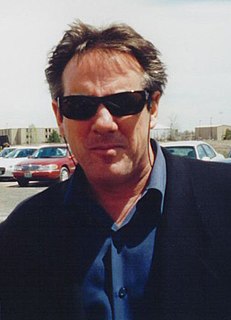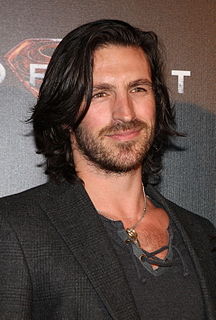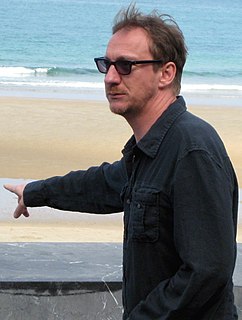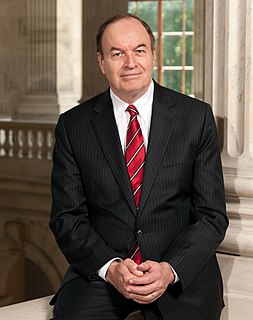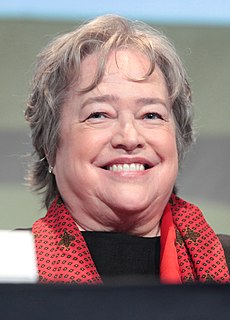A Quote by John Carroll Lynch
'Fargo' was the turnaround for me, in terms of film, because it was a part; it wasn't a line.
Related Quotes
I don't make movies. I don't feel that I have to have artistic control. Part of this comes from the fact that the book lives on no matter what Hollywood does to your novel in terms of a film. Now, you try to be careful who you allow to do your film because nobody wants their novel to become a turkey movie. But, on the other hand, it is a crapshot anyway, because even the best people can make a bad film.
Every part of it is important; the film comes alive when you edit it, the film comes alive when you write it, the film comes alive when you act it, and the same with the directing. They're all the most important part at the time and that's why I enjoy doing it, because you're creating a story and every part is a very integral part of it.
A number of former Wells Fargo employees have described their work environment characterized by intense pressure to meet aggressive and unrealistic sales goals. In a 2010 letter to shareholders, Mr. Stumpf wrote that Wells Fargo's goal was eight products per customer because eight rhymed with great.
I used to work in TV and quit the job because I couldn't do it any more. I quite like taking my time over a film, five years is how long it takes me to work something out. And when you just do quick turnover, turnaround, I'm literally this is driving me mad, I want to find another living. I'll just have to find a creative way to tell the story.
'How the West was Won' was very hard, because it was a three cameras technique, meaning three cameras wide. Therefore I wasn't speaking to my fellow performer, I was speaking to a camera, or a line next to the camera. It was difficult to do, because its not real acting. I had to pretend that I was 'seeing' Agnes Moorhead or Jimmy Stewart or Carroll Baker. I wasn't, I was acting to a drawn line. It took me personally two years to make the film, because my character starts at age 16 and I end up being 92 years old in the film. By the end of that production, I was ready for a long nap.
The bottom line is that I'm an actor, so when somebody pitches me a great part, it's a no-brainer. You never know what it's gonna be like, in terms of the actual experience. You can be really excited about a part that can turn out shitty, you can have a bad time, there's a bad egg or two or three, in the bunch, or the producers are weird, or something like that.





